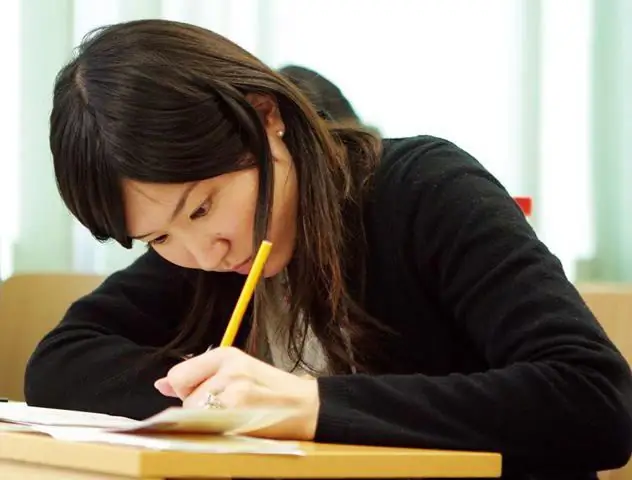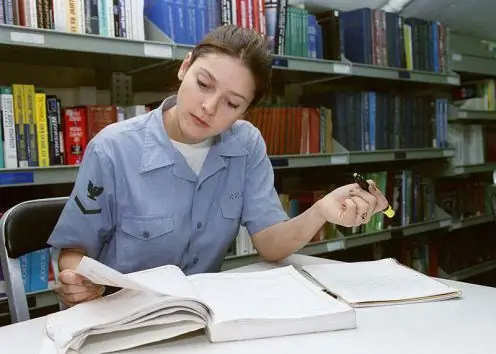Many pupils, students and even adults aspire to become literate. You can learn to see mistakes in writing (punctuation, spelling, grammar) at any age. To do this, you must follow certain rules of the Russian language, observe them in speech and writing.

Classification of errors in Russian
Mistakes made in speech or in writing are not the same in nature. Speech, grammatical, spelling, punctuation errors have fundamental differences. Speech and grammatical errors are associated to a greater extent with the content and meaning of certain words. Spelling and punctuation errors are related to the external expression of these words.

A spelling error can be seen in a word that stands alone, taken out of context. Other errors: punctuation, speech, grammatical - cannot be identified without context. For example, a spelling error in the word holiday can be seen immediately (an unpronounceable consonant, the correct holiday). Speech error in the phrase Baby needs mother's care is visibleonly in context (it is better to use the word care, since the word care has homonyms). A grammatical error can only be seen in a sentence, for example, The room was wide and light (wide and light, wide and light). Punctuation errors cannot be detected without relying on a sentence or text. For example, Love: to live not only for yourself is a punctuation error when choosing a punctuation mark between the subject and the predicate (correct: To love is to live not only for yourself).

Punctuation. Punctuation marks
Punctuation is a set of rules for the correct punctuation in writing. The character data system is also called punctuation. The Russian language uses ten punctuation marks. Three of them are signs of completeness of thought: a period, a question mark, an exclamation point - they are at the end of a sentence. One - a sign of incompleteness of thought - an ellipsis, which can be placed in any part of the sentence. The signs of incompleteness of the statement are comma, dash, colon, semicolon. They are in the middle of a sentence. There are double signs in Russian - these are brackets and quotes. Additional information is given in parentheses. Quotation marks enclose names and direct speech. In other languages, there are some other signs. For example, an inverted question mark in Spanish or single quotes in English.
Point chart
Both a punctuation mark and a space are called a punctogram. Words in a modern Russian sentence should be separated from each otherspaces, between them must be the necessary punctuation marks. For example, the Sun, waves, seagulls - everything is in seaside resorts. Let's compare, the sun and seagulls are all in seaside resorts - it turned out to be a row of Russian letters that is difficult to read. Thus, punctuation marks and spaces serve to separate words and sentences from each other.
Punctograms in different languages
There are languages (e.g. Chinese, Japanese) that do not have spaces.

The text looks unreadable at first glance, but if you look closely, it has a lot of punctuation marks that serve to divide the test into parts, as well as to indicate features inherent in these languages (longitude, brevity, and so on). If we turn to the history of the Russian language, then in the Old Slavonic language the texts were written without punctuation marks and spaces. Sentences were rarely separated by dots. Capital letters were written only at the beginning of a new chapter. But it had more diacritical marks than in modern Russian: supra- and subscript.
Punctuation errors
Punctuation as a science is important for native speakers. After all, the understanding of the written text depends on the correct punctuation marks or their absence. For example, the sentence Be friends can not fight - definitely requires a punctuation mark for its adequate understanding. Here, the correct setting of the comma: Be friends, you can’t fight - it depends on how the sentence is read and the information is understood. Incorrect punctuation is a punctuation error.

A place where a certain punctuation mark is required, but there is another one or none at all, is called a punctuation error. For example, the Sun, the field warming with its rays, stood high - this is a sentence where a mistake was made. Correction of punctuation errors is based on knowledge of punctuation rules. In this situation, there are cases of isolation of participial revolutions: the participle turnover, located after the word being defined, is distinguished by commas: the Sun, warming the field with its rays, stood high. Here, the understanding of the meaning of the whole sentence depends on the correct allocation of participle turnover.
Reasons for punctuation errors
Grammar and punctuation errors are more common than others in the work of students, especially high school students.

This is primarily due to the fact that the syntax becomes more complicated in high school. When studying simple complicated and complex sentences, material is introduced on the correct placement of punctuation marks, which is difficult for a high school student to master. An important factor in the formation of gaps in knowledge of punctuation is the reduction of hours allotted for spelling. Every year the percentage of students who do not read is increasing. As a result, there are difficulties in the correct perception and reading of the text. Prevention and checking of punctuation errors should be carried out directly in the process of writing. Otherwise, there will be no meaningful division of the text into fragments. All punctuation is importantwhile writing, not after writing the text.
Punctuation in a simple sentence
In a simple sentence, that is, in a sentence where there is one grammatical basis, if it is not complicated, no punctuation marks are put, except for finals and dashes. For example, the main thing is to be young at heart. Where does the cheetah live? Spring is an amazing time of the year! If a simple sentence is complicated by something, then commas are put in it, sometimes a dash and a colon. Complicate a simple sentence can:
- Similar Members: The sea splashed and played. There were oyster mushrooms, milk mushrooms, chanterelles in the basket.
- Separate members: A vase filled with flowers was on the table. His sister, Elena Lvovna, works in television.
- Messages: Lisa, speak louder. O sea, you are beautiful!
- Introductory words and sentences: It will probably be clear weather today. According to the lawyer, the case should be continued.
In a simple complicated sentence, punctuation errors, examples of which are given below, are common.
| Sentence with a mistake | Rule | Corrected sentence |
| Jasmine bloomed on the edge of the forest hidden among the trees. | The participle is separated in position after the main word | At the edge of the forest, hidden among the trees, jasmine blossomed. |
| Everything suited the princess house park pond. | In cases where the generalizing word comes before a number of homogeneous members, a colon is placed after the generalizing word. | Everything suited the princess: house, park, pond. |
Punctuation in a compound sentence
In a complex sentence, you can find any punctuation marks. In writing complex sentences, punctuation errors are often made. This is probably due to difficulties in the perception of long syntactic constructions. The main thing to understand is that there should be punctuation marks between the parts of a complex sentence. If this is a compound sentence, then a comma is placed before the coordinating union: She was bored, and he was interpreting. If the parts of such a sentence have a common member, a comma is not required: For a whole month she was bored and he yearned (the common member is a whole month). In a complex sentence, a comma is etched at the junction of the subordinate parts and the main one: The guys went fishing when dawn was approaching.
Quote and direct speech
Quoting and direct speech are similar in that they use quotation marks. Quote rules are also similar. Quotes are placed in quotes and direct speech too.

If the author's words are before a quote/direct speech, then a colon is put after them: The author says: "There is no better friend than conscience." She said, "I'll go to the park after work." If the author's words follow a quotation / direct speech, then they are preceded by a comma and a dash: "There is no better friend than conscience," the author says. "I'll go to the park after work," she said. The quotation can only be given with an indication of the source:"Because I made him drunk with tart sadness" (A. A. Akhmatova). Direct speech in a dialogue can be made out as separate replicas without quotes. Then a dash is placed before the statement, which is formed from a new line:
- Good afternoon!
- Kind! How can I help you?
- I am interested in the work of the Wanderers.






